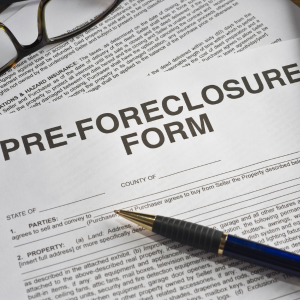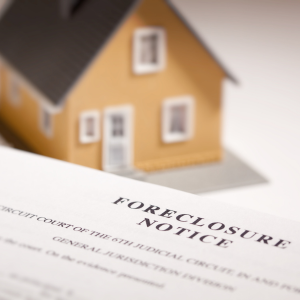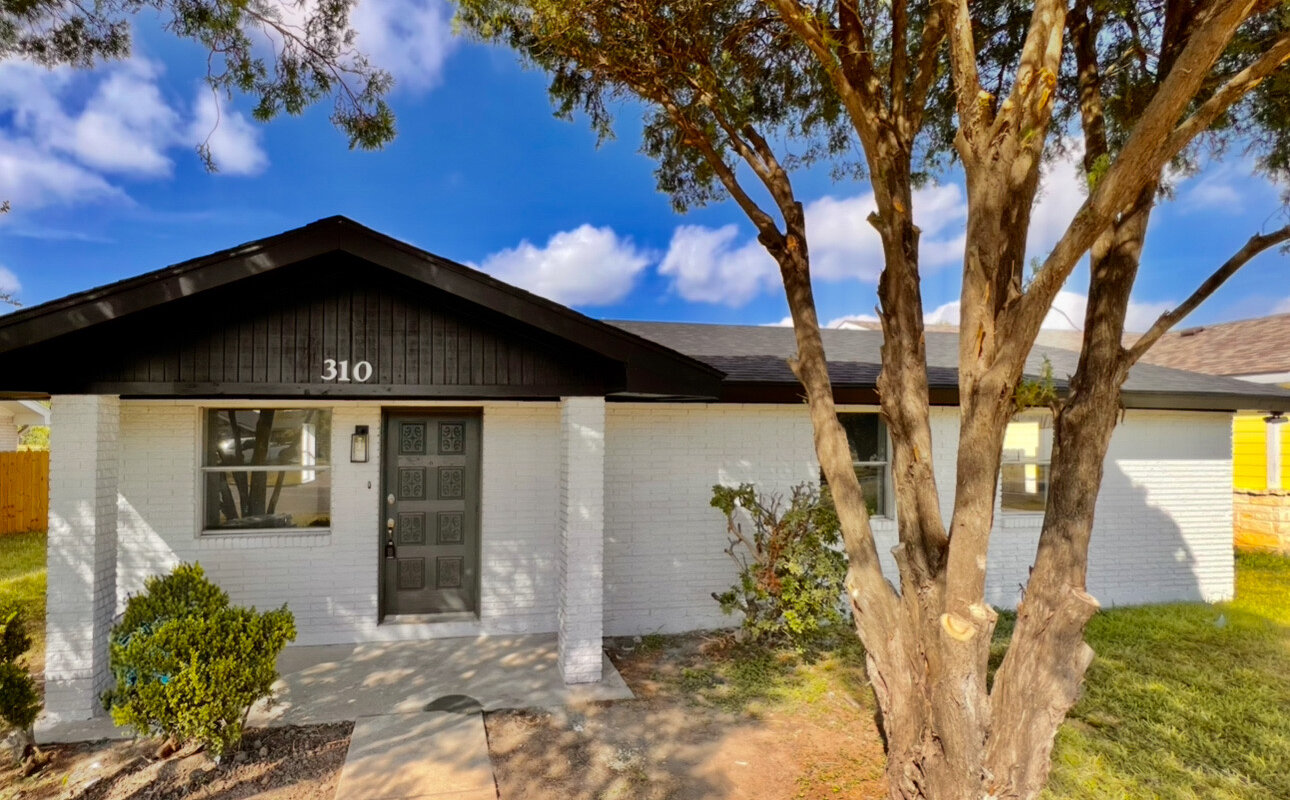
If your house is in foreclosure in Texas, you can still sell it by understanding legal options like short sales or negotiating with lenders. Act promptly to potentially salvage equity and navigate the foreclosure process effectively with House Buyers RGV.
Understanding Texas Foreclosure Laws and Your Rights
What are the different stages of foreclosure in Texas?
In Texas, there are two main ways for default to happen: without a judge’s help and with one. Most foreclosures are “non-judicial,” which means the courts are not involved. These are the steps:
- Notice of Default: The lender tells the homeowner they have missed mortgage payments.
- Acceleration Notice: If the default isn’t fixed, the full loan amount is due.
- Notice of Sale: The homeowner gets a date for the public auction.
- Auction: The property is sold to the person who bids the most.
- Judicial Foreclosure: Less common, this involves the lender going to court. If approved, the property is auctioned.
Knowing these steps can help homeowners manage the process.
How long does the foreclosure process typically take in Texas?
It depends on the type of default in Texas how long it lasts:
- Non-Judicial Foreclosure: Usually takes about 60 to 90 days from notice to auction.
- Judicial Foreclosure: This takes longer because it involves the courts, sometimes lasting several months.
The time frame can change depending on how quickly you work with your lender and answer messages. Texas law has due dates that you need to meet.
What are my legal options if I’m facing foreclosure?
If you’re facing foreclosure, here are some ways to get help:
- Loan Modification: Change your loan terms to make payments easier.
- Forbearance: Pause or lower payments temporarily.
- Short Sale: Sell your home for less than you owe, with the lender’s OK.
- Deed in Lieu of Foreclosure: Give your home to the lender instead of foreclosing.
- Bankruptcy: Temporarily stop foreclosure to explore other options.
Talking to an attorney familiar with Texas foreclosure laws can help you understand these options better.
Can I still sell my home before the foreclosure process is complete?
You can do that before the sale is over. Before the eviction, you can:
- List the Property: Work with a real estate professional to sell at market value.
- Find a Buyer: Look for buyers before the auction.
- Handle Legal Requirements: Make sure all liens and paperwork are correct.
Act quickly to work with your lender and ensure the sale meets legal needs. Selling before the auction can protect your credit.
What are the rights of a homeowner facing foreclosure in Texas?
Homeowners in Texas have certain rights during foreclosure:
- Right to Notice: You must get proper notice of default and foreclosure.
- Right to Cure: You can pay the default amount to stop foreclosure before the auction.
- Right of Redemption: You might reclaim your property after foreclosure by paying in full.
- Right to Seek Legal Advice: Get help from legal experts for guidance.
Knowing these rights helps you protect yourself during the foreclosure process.
Selling Your Texas Home During Pre-Foreclosure: A Strategic Approach

How can I determine the fair market value of my home in the current market?
To find out how much your house is worth on the market, look at other homes that have recently sold in the same area. You can use real estate websites or talk to a real estate professional in your area for help. Check out the home’s location, state, and market trends to figure out how much it’s worth. Remember that the wealth of your home—how much you owe compared to how much it’s worth—affects the price you can get for it.
What are the typical fees associated with selling a home in Texas?
In Texas, selling a home involves several costs and fees:
- Real estate professional commissions: Usually 5-6% of the sale price.
- Closing costs: Typically range from 2-5% of the selling price.
- Other expenses: May include inspection fees, title insurance, and repairs.
Knowing these expenses helps you plan for a smooth transaction.
How can I find a reliable real estate professional specializing in pre-foreclosure situations?
To find a skilled real estate professional for pre-foreclosure sales, look for someone experienced in these situations. Check online reviews, get referrals, and interview several agents. Choose one who has guided sellers through pre-foreclosure and whom you feel comfortable working with.
What marketing strategies are most effective for selling a home quickly in a pre-foreclosure situation?
To sell your house fast in pre-foreclosure, use effective marketing strategies:
- Online advertising: Post listings on real estate websites and social media.
- Home staging: Make your property appealing to buyers.
- Professional photography: Use high-quality photos to highlight your home’s features.
These strategies can attract more buyers and speed up the sale.
Should I consider a cash offer to expedite the sale?
A cash offer can speed up the sale process. Cash offers usually have fewer conditions and close faster. This is helpful in pre-foreclosure situations where time matters. Think carefully about this choice; cash offers might be lower than financed ones, but the quicker sale could be worth it.
Selling a Foreclosed Home in Texas: Navigating the Legal and Practical Aspects
Can I sell my house after a foreclosure notice has been filed? What are the implications?
Getting a foreclosure notice can be very stressful. In Texas, you still have options after getting this notice. You need to understand your rights during this time. You can sell your house to stop the foreclosure, but there are legal details to keep in mind:
- You Are Still the Owner: Until the foreclosure sale is done, you are still the owner of your house. You can try to sell it before the sale.
- Risk of Auction: If you don’t act, your house could be sold at an auction for a lower price.
- Consult a Lawyer: Talk to a real estate attorney to understand your rights and how you might recover financially.
What are the requirements for selling a foreclosed property in Texas?
If you want to sell a foreclosed property in Texas, you must follow specific rules:
- Collect All Documents: Get your title deed, mortgage statements, and any foreclosure notices ready.
- Understand the Process: Work with your lender and perhaps a real estate attorney to make sure everything you do follows the law.
- Get Lender Approval: You need the lender’s permission to proceed, especially if you’re working on a short sale.
Having all the right documents and knowing each legal step is necessary to make the process smooth and avoid problems.
How do I navigate the legal complexities of a foreclosure sale (e.g., working with the lender, understanding the sale process)?
Handling the legal parts of a foreclosure sale involves several important steps:
- Keep in Touch with Your Lender: Stay in contact to know their requirements.
- Negotiate: Try to negotiate terms that make the sale easier.
- Get Professional Help: A good real estate professional can offer advice for your situation.
- Read the Contract Carefully: Understand all the obligations, deadlines, and even cancellation terms in the contract.
Working with experts can help you manage this difficult process effectively.
What are the differences between a judicial and non-judicial foreclosure sale in Texas?
In Texas, it’s important to know the difference between judicial and non-judicial foreclosure sales:
- Judicial Foreclosure: This involves going to court, which gives you more time because of the legal process. It lets you contest the foreclosure.
- Non-Judicial Foreclosure: This is more common in Texas and happens outside of court. It’s faster and offers less chance for intervention once it starts.
Each type has different benefits and timelines. Knowing these differences helps you prepare for what’s ahead.
What documents and legal steps must be followed?
To successfully complete a foreclosure sale in Texas, follow these steps:
- Gather Important Papers: Collect documents like the deed of trust, loan payment history, and any foreclosure notices.
- Meet Filing Rules: Follow all the filing rules required by the state.
- Follow the Law: Make sure to follow the legal steps required by Texas law, from notifying potential buyers to completing the sale.
Following these steps can help reduce risks and make the transaction smoother, which may protect your finances during hard times.
Negotiating with Lenders and Exploring Alternatives to Foreclosure
What strategies can I use to negotiate with my lender to avoid foreclosure (e.g., loan modification, forbearance)?

Facing foreclosure can be scary, but there are ways to negotiate with your lender:
- Loan Modification: Change the terms of your mortgage. This might lower your interest rate or extend your loan, making payments easier.
- Forbearance Agreement: Your lender may temporarily reduce or pause your mortgage payments, giving you time to improve your finances.
- Open Communication: Reach out to your lender. Explain your situation and discuss these options to prevent foreclosure.
What are the potential outcomes of a loan modification or forbearance agreement?
Knowing the outcomes of these agreements is important:
- Loan Modification: Lower monthly payments and avoid foreclosure, but it might extend your mortgage and increase total costs.
- Forbearance Agreement: Offers short-term relief. Once it ends, you’ll need to resume payments and catch up on any missed ones.
Consider these solutions carefully, thinking about their financial impact and if they meet your long-term goals.
How can I explore alternatives like short sales or deed in lieu of foreclosure?
If negotiations don’t work, consider these alternatives:
- Short Sale: Sell your home for less than you owe on the mortgage. It impacts your credit but reduces your debt.
- Deed in Lieu of Foreclosure: Transfer property ownership to your lender voluntarily. This may hurt your credit but less than a foreclosure would.
Talk to a real estate expert to get a clear picture of how these options affect you.
What are the pros and cons of each alternative?
When considering alternatives, think of the following:
- Short Sale:
- Pros: Offers a way to leave with dignity and lowers debt.
- Cons: Affects credit score and may have tax consequences.
- Deed in Lieu of Foreclosure:
- Pros: Quick resolution and it prevents foreclosure.
- Cons: Harms credit and might mean losing equity.
Weigh the risks and benefits of each choice to decide what’s best for you.
When is it best to consider each of these options during the foreclosure process?
Timing matters when choosing foreclosure alternatives:
- Early in the Process: Contact your lender right away. Early talks can give you more choices and solutions.
- Midway through: Review financial options and consider advice from financial counselors or real estate professionals.
- Late Stage: If foreclosure seems certain, look into last-resort options like short sales or deeds in lieu.
Acting quickly can greatly change the result of your foreclosure situation. Consider consulting experts, like House Buyers RGV, for advice specific to your needs.
Protecting Your Financial Future After Foreclosure or Sale
What happens to my credit score after a foreclosure or short sale?
A foreclosure or short sale can hurt your credit score a lot. A foreclosure might drop your score by 85 to 160 points. A short sale usually affects it a bit less. These events stay on your credit report for up to seven years, making it hard to get loans or good interest rates later.

Am I still liable for any remaining debt after foreclosure? How can this be addressed?
After a foreclosure, you might still owe money if the sale doesn’t cover the full mortgage balance. This leftover amount is called a “deficiency.” It’s important to talk with your lender to understand your liability. Sometimes, lenders may forgive part of this debt through an agreement. Getting advice from a financial advisor or legal expert can help you handle these obligations.
How can I rebuild my finances and credit after a foreclosure or short sale?
To rebuild your finances and credit, follow a clear plan:
- Create a Budget: Make a budget to track and manage your expenses.
- Pay Bills on Time: Paying bills promptly helps improve your credit score.
- Credit Counseling: Consider consulting a financial advisor or credit counselor for a recovery plan.
- Secure a Secured Credit Card: Using this card wisely can boost your credit score.
- Review Your Credit Report: Check for errors and dispute inaccuracies regularly.
By using these steps, you can gradually recover and strengthen your finances.
What steps can I take to minimize the negative impact on my financial future?
To avoid long-term financial problems, consider these actions:
- Seek Professional Advice: Work with financial advisors for planning and risk reduction.
- Diversify Income Sources: Find ways to earn additional income.
- Build an Emergency Fund: Save money for unexpected expenses to have a safety net.
- Establish a Debt Repayment Plan: Focus on paying off current debts.
Taking proactive steps today can make a big difference in protecting your financial future. At House Buyers RGV, we buy houses in cities like Brownsville, Harlingen, and McAllen, TX—providing fast, reliable solutions for homeowners looking to move forward.
What resources are available to help me recover financially after foreclosure?
There are many resources to help with financial recovery:
- HUD-Approved Housing Counselors: They offer low-cost advice on foreclosure prevention and recovery.
- Non-Profit Organizations: Groups like the National Foundation for Credit Counseling provide support.
- Financial Workshops: Community centers often offer workshops on financial skills.
- Online Resources: Websites such as MyMoney.gov provide tools for better financial management.
House Buyers RGV is here to help. Explore these options to find the support that aligns with your recovery plan. Taking advantage of these resources can be a powerful step toward rebuilding your financial health. Have questions? Contact us to get started.
FAQS:
Can I sell my Texas home if it’s in foreclosure?
Yes, you can sell your home in Texas even if it is in foreclosure. Act quickly to avoid a foreclosure sale. Consult with a real estate professional who knows about foreclosures for guidance.
What are my options for selling a foreclosed house in Texas?
You can sell to a cash buyer or list with a realtor familiar with distressed properties. Each option has its pros and cons, so discuss these with an expert.
Will I incur fees when selling my house in foreclosure in Texas?
Yes, there may be costs like realtor commissions or legal fees. A quick sale can help reduce these expenses by preventing extra foreclosure costs.
How does non-judicial foreclosure work in Texas?
In Texas, most foreclosures are non-judicial, which means no court proceedings are involved. A trustee manages the process, which usually goes faster than judicial foreclosures.
Can selling a house during foreclosure affect my credit score?
Selling a home before foreclosure is completed can have less impact on your credit score compared to a completed foreclosure. Talk to a financial consultant to understand the potential effects.
What are the foreclosure auction processes in Texas?
Foreclosure auctions in Texas usually happen on the first Tuesday of every month at the county courthouse. Details are posted publicly beforehand.
How does Chapter 13 bankruptcy impact foreclosure in Texas?
Filing for Chapter 13 bankruptcy can temporarily stop foreclosure and allow you to reorganize your debts. It’s best to consult an attorney for personalized advice.
Are there resources available for Texans facing foreclosure?
Yes, there are resources like housing counselors, legal aid organizations, and online guides that offer help and information on foreclosure options. Engaging with these resources can provide valuable support.
Key Insights
- Selling a house in foreclosure in Texas is possible. Understanding your options is crucial. Learn how the foreclosure process works and what steps you can take.
- We provide guidance on how to sell a house in foreclosure, including strategies like cash sales and loan modifications to protect your credit score.
- Foreclosure options in Texas include forbearance agreements and deed in lieu of foreclosure. These can offer relief and might stop an auction sale of your property.
- It’s important to know about Texas housing market trends and statistics during foreclosure. This knowledge can affect your selling strategy.
- If you’re in pre-foreclosure, there are resources to help you manage the situation. Consult a real estate attorney or realtor in Texas for valuable insights.
- The Texas real estate foreclosure scene involves specific fees and conditions. Be aware of these when planning to sell your house if it is in foreclosure.
- Consider options like refinancing or seeking advice from consultants to improve your financial situation and increase your assets while reducing liabilities.
- If you’re thinking about selling a Texas home in foreclosure, strategic marketing and advertising can attract potential buyers.
- Stay updated on foreclosure auctions. Knowing about current events and outcomes can help you understand the Texas home selling process better.
- Experts suggest doing a detailed analysis of your finances and exploring all options before making decisions about foreclosure.
- Use our resources, blog articles, and expert guides to answer your questions about selling a house in foreclosure in Texas.
- For more information, consult reliable sources like law libraries or visit our website for ongoing updates and helpful resources on foreclosure issues.
- If you’re looking to sell, evaluate aspects like affordability and the potential impact on your credit score to make the best decision for your situation.
- Connect with us to learn about options and legal considerations related to foreclosures in cities like San Antonio, Texas.
- We offer assistance and support to guide you through foreclosure complexities, helping you find the best solution for your situation.
- Reach out for expert consultations to plan your next steps, whether through refinancing options or during the selling process in foreclosure.

